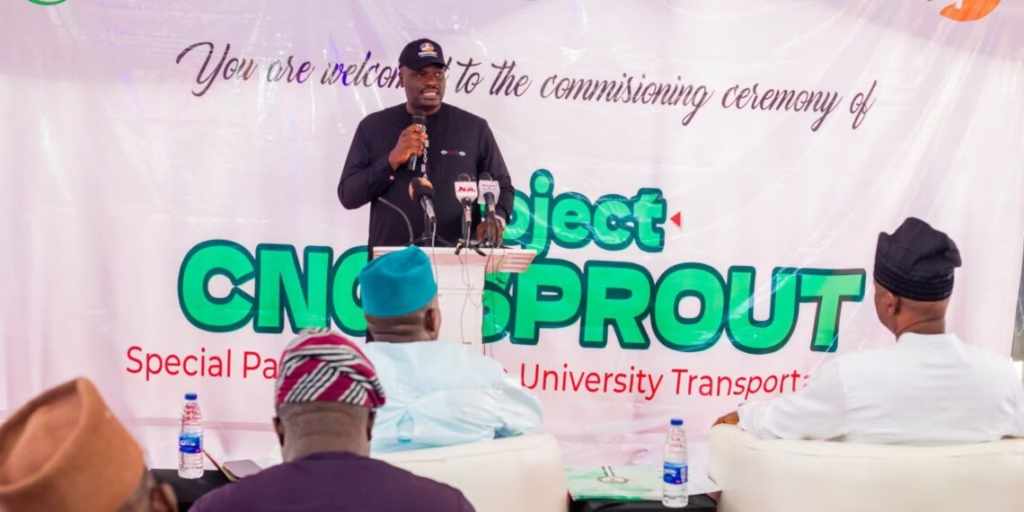The Nigeria Federal Government has launched Project SPROUT (Special Palliative Relief of University Transportation) — a transformative initiative that will introduce Compressed Natural Gas (CNG)-powered buses and tricycles across Nigerian university campuses.
The goal? Cleaner air, lower transport costs, and a smarter, student-friendly mobility system.
What Is Project SPROUT All About?
Project SPROUT is being driven by the Presidential Compressed Natural Gas Initiative (PCNGI) as part of a larger national strategy to cut down fuel expenses and carbon emissions.
According to officials, the project will deploy specially designed eco-friendly buses and tricycles to Nigerian tertiary institutions — starting with select universities — and gradually expand to cover more campuses nationwide.
The vehicles run on CNG, a cleaner alternative to petrol, which significantly reduces air pollution and costs much less to operate.
Why It Matters for Students and the Environment
University transportation in Nigeria has long been plagued by high fuel costs, unreliable services, and unsafe vehicle options. Project SPROUT is designed to solve these problems while offering these key benefits:
- Lower transport fares for students and staff
- Environmentally friendly mobility powered by clean fuel
- Increased awareness and adoption of green energy in Nigeria
- Skill-building opportunities for young engineers and innovators interested in energy and transport technologies
It’s more than just a transportation upgrade, it’s a full-on great strategy to connect Nigerian youth with the future of clean energy.
A Piece of a Bigger Puzzle
This launch follows several other green transport milestones under the PCNGI umbrella. For example:
- Over 800 taxis at Abuja Airport have been successfully converted to run on CNG.
- CNG-hybrid buses are already in use on selected Nigerian roads offering subsidized fares for commuters.
Despite early setbacks like limited CNG refueling stations and high conversion costs, the Federal Government has committed more than $450 million to strengthening the country’s CNG infrastructure.
What Comes Next?
Project SPROUT is just the beginning. With its launch, Nigeria takes another big step towards:
- Reducing its carbon footprint
- Cutting down reliance on expensive petrol
- Empowering students with cost-effective and climate-friendly transportation
Officials say the program will be expanded to more campuses over time, and local governments, institutions, and private partners are expected to join hands to sustain the momentum.
